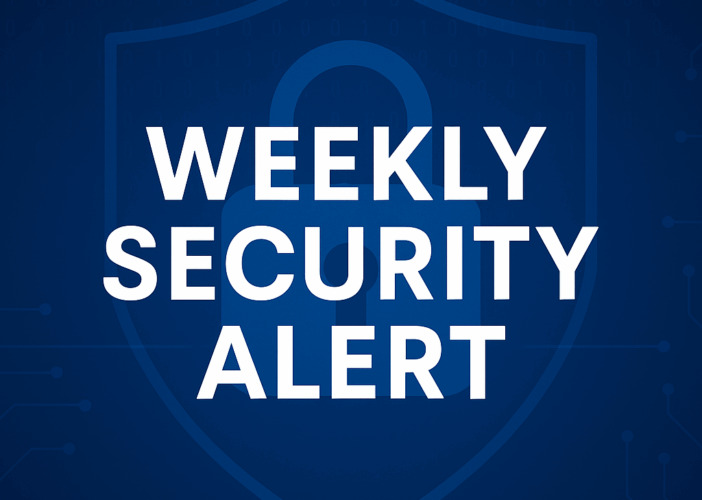Managed Security Services Provider for Retail: How to Choose and Partner for Better Protection
Retailers face an overwhelming array of cybersecurity threats across Point-of-Sale (POS) terminals, inventory systems, Internet of Things (IoT) devices, guest Wi-Fi, and cloud services. With evolving compliance standards like the Payment Card Industry Data Security Standard (PCI DSS) and a shortage of skilled security professionals, many retail organizations are turning to a Managed Security Services Provider (MSSP) to fill the gaps.
Learn how retail stakeholders—from IT managers to Chief Information Security Officers (CISOs)—can identify the right MSSP partner, set clear expectations, and maximize the value of their investment.
Why retail needs an MSSP
Retail environments present a unique combination of challenges: a broad attack surface, distributed locations, seasonal workforce fluctuations, and tight margins. Internal IT teams often lack the 24/7 coverage, tools, or headcount required to detect and respond to modern threats.
An MSSP brings:
- Continuous monitoring and detection across all store networks
- Expert-led incident response with playbooks tailored to retail
- Vulnerability and patch management across POS, IoT, and more
- Audit-ready compliance support for PCI DSS and state-level data regulations
What to look for in a retail MSSP partner
Not all MSSPs are created equal. Look for these six retail-specific capabilities:
- Industry expertise: Choose a provider with proven experience securing POS systems, connected devices, and omnichannel retail networks.
- 24/7 availability: Peak shopping hours, holidays, and weekends demand uninterrupted monitoring and rapid response.
- Scalability: The right MSSP will easily support seasonal store rollouts, acquisitions, and temporary locations without gaps in coverage.
- Retail-tailored playbooks: Generic workflows won’t cut it. Look for incident response plans customized for POS breaches, supply-chain exposures, and regional compliance obligations.
- Seamless integration: Look for compatibility with your existing tools—POS platforms, Security Information and Event Management (SIEM), Endpoint Detection and Response (EDR), and cloud infrastructure.
- Transparent SLAs and reporting: Your MSSP should commit to clear service-level agreements and deliver dashboards and reports that resonate with both technical and executive audiences.
Working effectively with your MSSP
The relationship doesn’t end at contract signing. Use these best practices to ensure success:
- Define scope and objectives: Align on business-critical assets (POS, inventory systems, guest networks) and set shared outcomes such as detection time or breach containment expectations.
- Onboard and integrate: Deploy lightweight agents, ingest log sources, and connect threat intelligence feeds quickly with help from your MSSP’s onboarding team.
- Customize your playbooks: Co-develop incident workflows for real-world retail scenarios such as IoT device compromise or loyalty program abuse.
- Communicate continuously: Establish dedicated points of contact, escalation protocols, and a cadence for reports and briefings.
- Review and optimize quarterly: Meet regularly to review detection and response metrics, refine playbooks, and assess new risks from store expansions or vendor changes.
The business case for an MSSP in retail
Retailers who partner with the right MSSP experience measurable benefits:
- Reduced risk and dwell time: Expert triage and real-time detection shrink the amount of time that threats stay active.
- Operational efficiency: Free up in-house IT to focus on business systems instead of managing a Security Operations Center (SOC).
- Compliance readiness: Automated reporting and retention policies reduce PCI DSS audit preparation time by up to 40%.
- Predictable costs: Subscription pricing scales with your footprint, converting capital expenses into operational expenses.
Next steps
Ready to take the next step toward stronger protection and leaner operations?
Whether you’re evaluating providers or optimizing an existing partnership, the right MSSP can help you protect revenue, simplify compliance, and focus on what matters most: the customer experience.
Key Ideas Q and A
Q: Why are retailers increasingly turning to a Managed Security Services Provider (MSSP)?
A: Retailers are turning to MSSPs because they face broad attack surfaces, evolving compliance standards, and limited internal security resources—making 24/7 coverage and expert support essential.
Q: What challenges make retail cybersecurity uniquely difficult to manage in-house?
A: Retail IT teams often struggle with distributed locations, seasonal workforce changes, tight budgets, and a lack of around-the-clock threat detection and response capabilities.
Q: What key capabilities should retailers look for in an MSSP partner?
A: Retailers should seek an MSSP with proven retail security expertise, 24/7 availability, scalable coverage, customized playbooks, tool integration, and transparent SLAs with actionable reporting.
Q: How can retail IT teams work effectively with their MSSP?
A: To work effectively with an MSSP, retailers should define clear objectives, onboard systems quickly, co-develop tailored playbooks, establish communication protocols, and conduct quarterly reviews.
Q: What are the business benefits of using an MSSP in retail?
A: A well-matched MSSP reduces risk and dwell time, boosts internal efficiency, improves compliance readiness, and offers predictable, scalable pricing aligned with store growth.
Q: How does an MSSP help retailers stay compliant with standards like PCI DSS?
A: MSSPs support compliance by offering automated reporting, policy enforcement, and audit-ready documentation—often reducing PCI preparation time by up to 40%.
Q: What are the first steps for retailers considering an MSSP?
A: Retailers should start with a tailored threat assessment to uncover security gaps, followed by a consultation to find MSSP services that match their specific risk profile and operational needs.
Request your free threat assessment.

